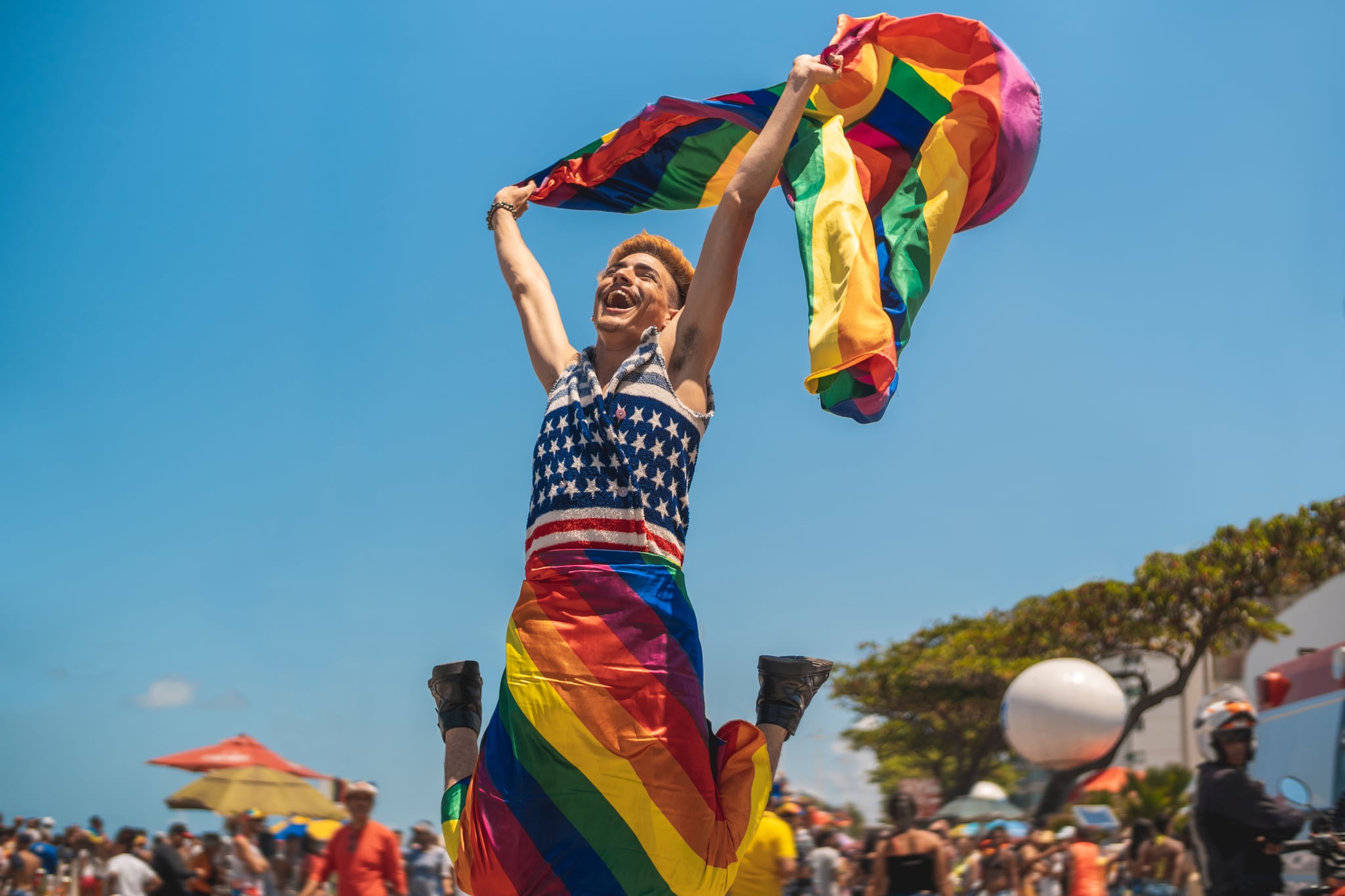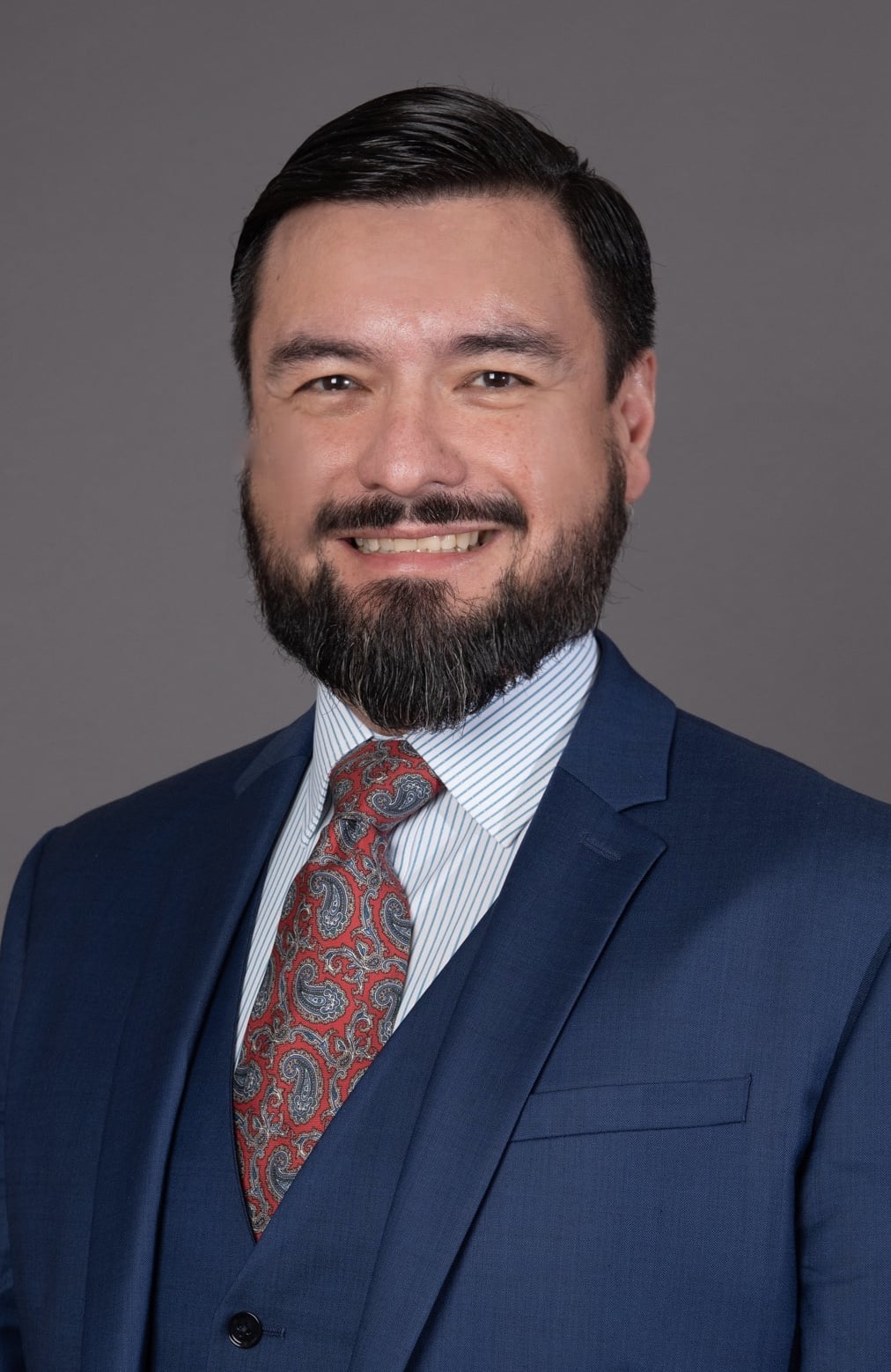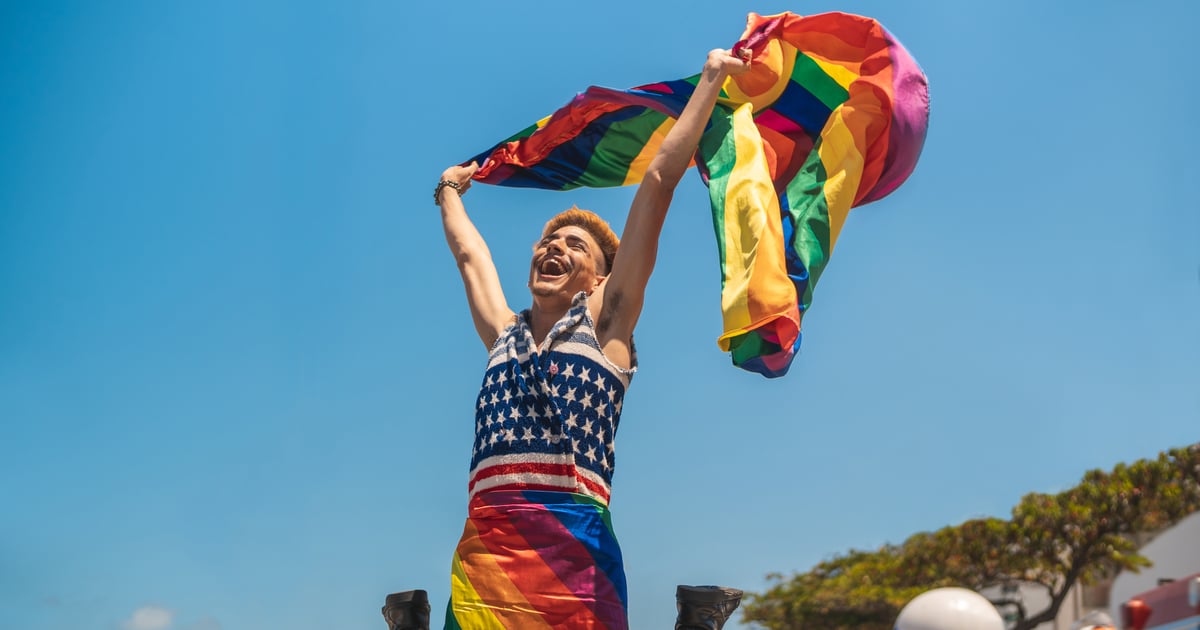
“I want to make sure everything I’m doing is creating a better world for my boys.” Daniel Reyes is the chief program officer at The Lesbian, Gay, Bisexual, and Transgender Community Center in New York. He’s also a Latinx immigrant, and a “proud gay papá of two amazing twin boys.”
Born in Mexico, Reyes was raised in Chicago before becoming a high school Spanish teacher. “I never saw teachers who looked like me,” Reyes told POPSUGAR, referring to the absence of BIPOC employees at his school. “Spending time with students of color and Latinx student groups, I realized that my heart was more outside the classroom, and moved into the nonprofit sector.”
“I come from an immigrant family. I’ve come from a family that experienced economic exclusion. I understand and I feel those things very deeply,” he said. “I remember the dynamic of [receiving help and] feeling totally disempowered and totally helpless — filled with shame. How do we remove that from the equation?”
Today, he’s tackling equity, empowerment, and advancement through the intersectionality of the LGBTQ+ community, and he says, “There’s still a lot of work to do.”
Finding a Home at The Center
For two years, Reyes was the executive director at Junta For Progressive Action in Connecticut, a social justice and service organization he describes as being “built and run by the Latinx community.” This was important to Reyes because after his years and years in the nonprofit sector — working specifically in children and family services, immigration, and emergency food — he was keenly aware of the fact that the top of these organizations were largely comprised of white people, who could empathize but never quite understand the challenges facing the communities they served.
Junta was different, and when The Center came calling, he knew he had found the next phase of his work. The demographics of the queer community have changed, “and The Center understands that the future of our communities are Black and brown and every color under the rainbow,” Reyes explained. “With that comes a plurality of perspectives, a plurality of need and energies, and [The Center] really wanted to lean into that.”
The Center is what Reyes calls an “identity service provider,” essentially a place that provides a service for a particular identity. “To be part of an organization that really has been thinking about queer and trans BIPOC communities has been amazing,” he told POPSUGAR. He feels proud that The Center has given him action items and that the work they’re doing isn’t performative — they’re really making a difference.
“The future of our communities are Black and brown and every color under the rainbow.”
For example, he’s had the opportunity to partner with the Icahn School of Medicine at the Mount Sinai Medical Center on a project called “Speak Up, New York.” Currently, the focus is on “Speak Up on COVID-19.” Together, they’re doing community-based and community-engaged research to “look at the effects and disparities communities have been experiencing with COVID and how it translates to health outcomes for individuals,” Reyes said. “The Center and Mount Sinai have been working on this survey with a bunch of other providers.” He describes it as a “genuine collaboration” between the organizations and the community.
Intersectionality and the Future of Our Communities
“My time at The Center has really been about bringing in that intersectionality into the LGBTQ+ communities,” Reyes told POPSUGAR. “This is the crux of my work: understanding that in order to advance and lift up our communities, we have to be thinking holistically. An individual is the sum of many parts, and if we’re constantly just trying to address part of a person, we’re never going to get anywhere.”
“An individual is the sum of many parts, and if we’re constantly just trying to address part of a person, we’re never going to get anywhere.”
While queer and trans people have that identity in common, people of color have always faced a unique set of challenges. “The LGBTQ+ community has been reflective of the US in general,” Reyes said. “It’s [also] built on the racist structures that exist in the country.” For The Center, the question then becomes: “How do we dismantle that?”
Intersectionality has a large bearing on access to resources — down to the food that we put on our tables — and Reyes has seen this firsthand. “When I worked in emergency food, really what we [were] dealing with is the alleviation of poverty,” he explained. “Food insecurity is built on lack of access and lack of resources.”
This has been brought to the forefront recently, particularly through his work with Mount Sinai. Reyes told POPSUGAR that this project feels especially meaningful after watching the novel coronavirus “ravage the city” earlier this year. “To see queer and trans Black and brown communities impacted [the most] . . . it’s been disheartening,” he said. “So when the folks at Mount Sinai reached out to me to work on the project, I immediately said, ‘Yes, absolutely.’ There was a fire in my heart over it already.”
Reyes is working with leaders from community organizations to “explore the best ways to ensure there’s equitable access to healthcare, equitable access to resources,” he explained. “It’s not a diversity or equality issue — it’s an equity issue. This requires us to think of things through an equity lens.” That framework demands intersectionality in more ways than one. “A lot of my experiences are working in that synthesis between nonprofit, social services, activism, advocacy,” Reyes said. “All of those things have to be intertwined together. They don’t work in isolation.”
To best address these needs, Reyes is taking a novel approach at The Center, shifting the focus to serving people, rather than just helping them. “What we’re doing is collaborating, innovating together. Deciding what we want as a community,” he explained. This gives power to those who have historically been powerless.
How to Be a Better Ally
If you feel inspired by Reyes and his work and want to get involved as an ally, he has some advice.
Step one: do your research before turning a friend into your personal search engine. “From my perspective, don’t put [your one queer Latinx friend] in the position to be a spokesperson for an entire community,” Reyes said. “Learn how to be an ally or understand something that’s not the most clear for you. Don’t put them in the position where they have to be a representative. Folks of color and queer folks — it’s not their job to explain things to you.”
He noted that this is not to be dismissive, rather it’s to encourage you to “join [us] by doing the work.” Reyes said that your friends will genuinely appreciate that you’ve come to the conversation having done your research. Doing the work also requires challenging existing structures, using your voice, and channeling some courage. Reyes went into The Center and was very direct, asking, “Aren’t you a pretty white organization?” He told POPSUGAR that he’s “past the point of being afraid,” and wanted to call attention to “necessary diversity.”
“We have a history and image we have to work against. We understand that the folks coming through our doors are incredibly diverse and we need to be able to respond to that effectively,” Reyes explained. “I appreciate what The Center is doing and trying to do.”

He continued: “It’s very easy to feel othered because you’re brown, you’re Black, you’re queer, you’re an immigrant. There’s this misnomer, this image of what an American is: a white, cis, middle class man. We’ve spent so much time trying to fit that. For myself, I spent so much time trying to fit that.” Reyes always worried that if he felt a micro or overt aggression about being Latinx or being queer and actually called it out for what it was that he would then “become the ‘crazy Latnix’ who is always calling everyone racist and homophobic.”
“We need to speak up, and we need to speak loudly, boldly, and bravely.”
Times have changed, and Reyes said he’s never felt such urgency to speak up. “Now we are in this period when we can say, ‘No. This needs to stop.’ We need to speak up, and we need to speak loudly, boldly, and bravely,” Reyes told POPSUGAR. Being in his late 40s, and having come to terms with his identity, he’s in awe of this next generation of young people. “Seeing where they’re at and how brave they are — if they can be brave, then we all need to be brave,” he said. “We need to support them. We need to make sure the path is being charted so that everybody has access and that there is equity for everybody.”
This work is deeply personal for Reyes — not just because of his life experience, nor simply for the betterment of the communities he cares about most, but for his young sons, so that they can grow up in a beautiful, more empowered, more welcoming and loving world.
